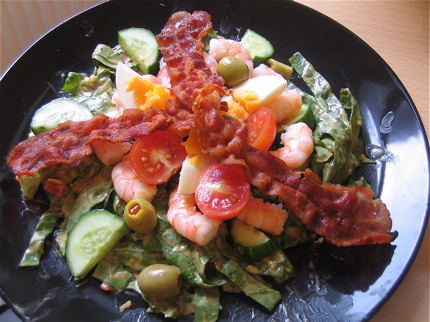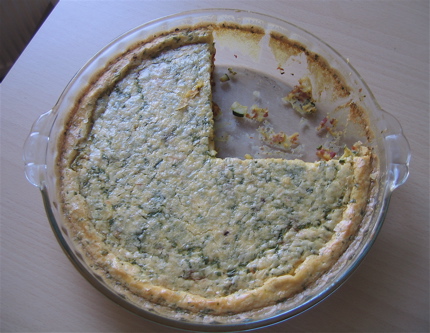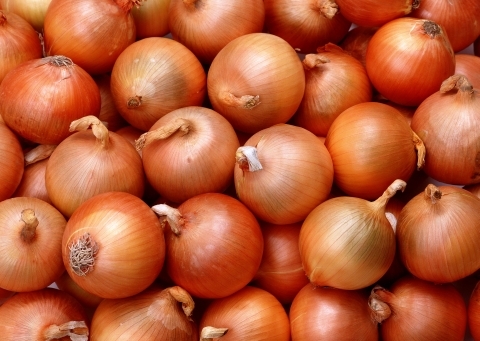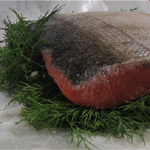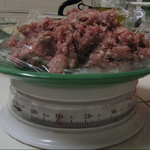I come from a family of cooks and eaters. My family gatherings center around the preparation of big, special meals. Every dinner is a production, from planning the menu to gathering the ingredients, to cooking the meal, and finally enjoying it over the course of an hour or two or three, always with lively conversation.
It used to be my sister that was the difficult one to please because until a few years ago, she was incredibly, perhaps even extraordinarily picky–if it was meat, it had to be filet; if there was a starch, it had to be potatoes; vegetables were generally frowned upon and certainly not consumed (unless in the form of Campbell’s tomato soup), and anything from the sea was completely off-limits. She has expanded her palate hugely in the past 8-10 years, and she’s now a joy to plan, prepare, and share meals with.
(Un)Surprisingly, this year’s culinary trouble maker with me. Over the past year especially I’ve changed my food habits towards (what I hope) a more locally-focused, sustainable, better-for-the-planet way of eating. When my sister and I sat down to plan our two big meals–Christmas Eve at my mother’s, and Christmas Day at my father’s–we almost immediately arrived at an impasse.
A: “How about grilled asparagus as a side?”
Me: “December is most certainly NOT asparagus season in Seattle. Veto. How about squash?”
A: “I don’t like squash. Plus asparagus would go well with the Chimichurri sauce.”
Me: “Well I don’t like buying asparagus grown in South America that has been treated with tons of chemicals and then shipped halfway across the world. The people picking the asparagus probably don’t make fair wages either.”
A: “Get off your soapbox.”
Nothing like my dearest sibling giving me a little gut-punch every now and again.
I didn’t let it drop and neither did she, and the asparagus discussion grew more heated. Two pragmatic points she raised are:
-it’s easy to advocate eating locally and seasonally when one lives in northern california that has basically a year-round growing season. In Boston, one would be stuck eating squash and potatoes from October through June.
(my reaction: I simply don’t believe this is true. Yes, for the coldest winter months one probably must eat storable root vegetables or preserved foods (frozen, canned, pickled, etc.), but come spring, you get your asparagus again. (Side note: I love reading this blog about an organic micro farm in Ontario, especially as winter comes into full force. I like being reminded that you don’t have to live in Zone 9 to grow good produce)
-it takes a lot energy to consistently think about where your food comes from, and in her own words: “After working a 14 hour days and coming home, I just don’t give a f*** that my raspberries come from Brazil. I just want raspberries. I have to live my life.”
(my reaction: Ok, I understand. In fact, I’ve been sick in bed these past four days, and all I wanted on sunday morning was a sliced banana on top of my oatmeal. Bananas most certainly don’t grown in or around Los Altos Hills, CA, but it didn’t stop me from adding bananas to Steven’s shopping list)
In the end, I succumbed on the asparagus. But I did make sure to purchase it at an independently owned stand at the Pike Place Market (Sosio’s Produce — one of my favorites at the Market).
Locavorism in practice has a lot a gray area, and until a large overhaul of our food production system happens, it will probably stay this way. With Locavorism, it’s not so much that one says this food is always good and this food is always bad, but rather that not all food is created equally. It’s no longer a carrot is a carrot is a carrot. It’s now this carrot was grown organically in Peru, this carrot was grown conventionally in Ohio using an array of pesticides and chemical inputs, and this carrot was grown 37 miles away on an independent organic farm. If available I’d go for the latter that was grown 37 miles away. But between the remaining two carrots, which is ‘better’? Now add in that the organic carrot from Peru is sold at Wal-Mart and the conventional carrot from Ohio is sold by an independently owned vegetable stand at the Pike Place Market. Now what? It’s a perfect recipe for analysis paralysis.
Food shopping was easier before I started thinking about all of this, but I have absolutely decided that ignorance is NOT bliss, and eaters need to educate themselves.
Though it’s true that in some way locavorism makes food decisions more complex, in other ways it also simplifies a persons food choices. One example is simply choosing what to make for dinner. Instead of choosing between asparagus, fennel, broccoli, cucumbers, artichokes, brussels sprouts, beets, and sugar snap peas, eating seasonally means you’ll be choosing between fennel, broccoli, brussels sprouts, and beets. I suppose some would see this as a limitation, but for me it makes one thing in my hectic life just a little easier to deal with. Plus when I’m buying locally at the Farmer’s Market, I don’t have to worry so much about the hidden costs of food, on the environment, on the growers, the harvesters, the impact on my community, etc.
We made it through the asparagus spat alright, and I came out with perhaps a wider view of what constitutes ‘acceptable food’, and my sister with a greater sense of the importance of local food, thanks to each other (and admittedly, the asparagus did go very well with the Chimichurri sauce). What followed were two delicious dinners shared with family that I just don’t see often enough in a city in which I don’t spend nearly enough time. Returned home to California, the time between Christmas and New Year’s flew by (perhaps due to being sick in bed for five of the seven days I’ve been back), and I’m now confronted with a whole new year! I did make a few New Year’s resolutions, most of which are terribly boring (like ‘plan summer garden better than last year’ and ‘continue saving money for the future’), but one of which is to keep up this blog both to spread the word about thoughtful eating and to incorporate structured quiet reflection into my day-to-day life. Anyways, I hope everyone had a good holiday season and a good start to 2008!
Also, while we’re talking about resolutions, here’s a list that I found interesting from the writers at Ethicurean.com
« Three Infused Vodkas: Persimmon, Lemon, and Pear/Ginger | Home | Pomegranate Glazed Root Vegetables with Israeli Couscous »

